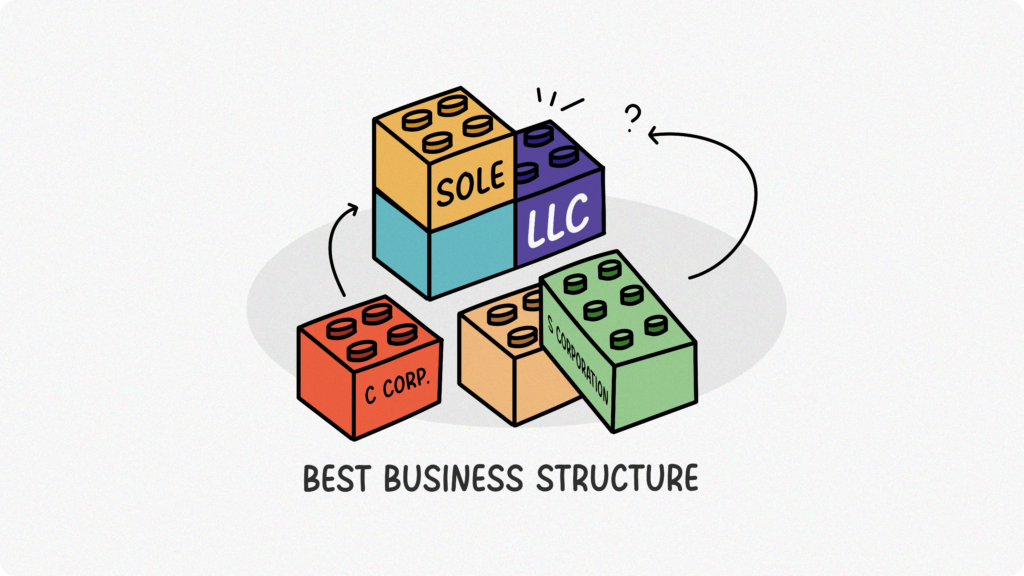Choosing the Best Business Structure for Freelancers

So, you’ve decided to take the plunge and start freelancing? Congrats! Before you dive into projects, let’s talk about the boring (but important) stuff: business structures. Here are the most common structures for freelancers: Business Structure Liability Protection Complexity Pros Cons Sole Proprietorship No Simplest Simple to start and manage Personal liability for debts and lawsuits LLC Yes Moderate Protects personal assets Flexible tax options S Corporation Yes More Complex Tax savings on self-employment taxes Requires more paperwork and compliance C Corporation Yes Most Complex – Strong liability protection – Attracts investors easily – Double taxation: both the corporation and owner pay taxes – Complex setup and ongoing requirements Sole Proprietorship The simplest setup, it’s like being self-employed. You don’t need to register your business with the state, and your business income and expenses are reported on your personal tax return. But remember, there’s no separation between your personal and business finances, so your personal assets could be at risk. Limited Liability Company (LLC) An LLC creates a legal shield between you and your business. This means your personal assets are generally protected from business debts and liabilities. You can choose to be taxed as a sole proprietor or a corporation. S Corporation (S Corp) A more complex structure that can offer tax benefits, especially if you have higher earnings. However, it requires more paperwork and can be more expensive to set up and maintain. C Corporation (C Corp) A traditional corporate structure, often used for larger businesses. It’s more complex and has higher administrative costs, but it can offer additional benefits like raising capital through the sale of stock. Thinking about how to set up your freelance business? Here are some questions to help you decide on the best fit: Are you the sole owner? If you’re running the show solo, a sole proprietorship or single-member LLC is a solid choice to keep things simple. Do you want liability protection? If keeping your personal savings separate from your business risks sounds good, go for an LLC or S Corp. They create a legal shield around your personal assets. Are you expecting high profits? Making big bucks? An S Corp can help lower your tax bill by saving on self-employment taxes. Planning to raise money from investors? If you’re thinking big and need outside funding, a C Corp is often the way to go—it’s built for attracting investors. How to Set Up Your Freelance Business in 5 Easy Steps Final Tips Choosing the right business structure sets the foundation for your freelance success—take the first step and bring your vision to life today!